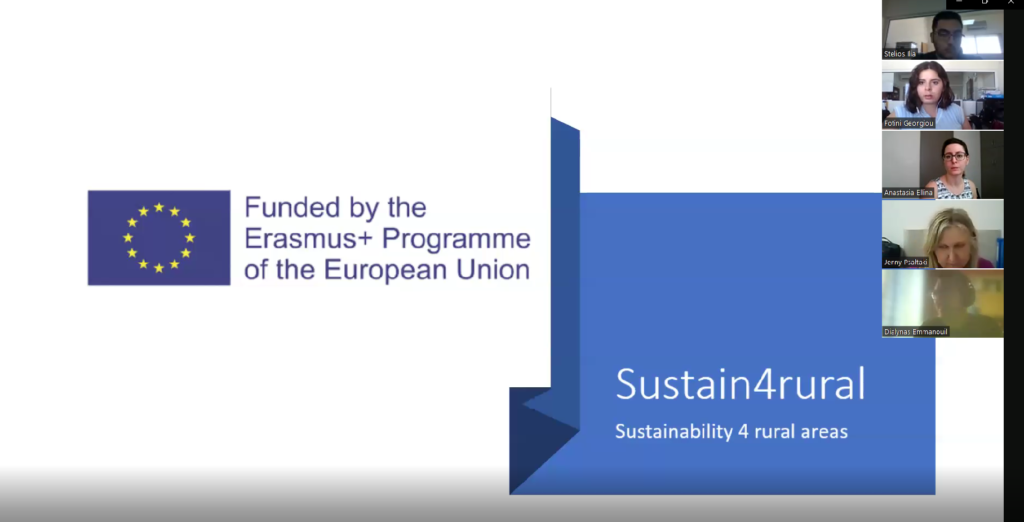ECECT is happy to present a new project on board: “Sustain4Rural” funded by Erasmus+
The consortium of the project consists of 3 partners one is ECECT from Cyprus, the second is Parpounas Sustainability Consultants from Cyprus and the third one is Miletia Sustainable Social Development from Greece.
Sustain4Rural is a project inspired by the continuous advancement of versatile smart technologies and their applications. The agricultural sector comprises different establishments that require such technologies not only to solve potential problems, automate and simplify certain applications but most importantly maintain sustainability. Sustainable and environmental green practices in agriculture aim to produce society’s needs without compromising the ability to do so in future generations, by using environmentally responsible and resource-efficient technologies.
However, people not only lack knowledge regarding the existence of such green technologies and sustainable practices but also the knowledge to implement them. Therefore, they turn to solutions that affect and destroy the environment without them thinking about the consequences (i.e., Landfills in remote areas, bad water management, no recycling, no proper disposal of machinery and other equipment, etc.). Professional organizations and people (ECECT, MILETIA, PARPOUNAS) who are interested in environmental practices, the protection of our forests, and the use of smart technologies came together in an effort to educate people who are not traditionally targeted by projects funded by European bodies. Starting with those who live in such rural areas such as farmers, whose livelihood depends on the environment. In order to identify these target groups properly, authorities and agriculture organizations will collaborate and indicate rural areas that are considered to require consultation/help related to sustainability, etc.
Following the identification of the rural areas, comes the identification of interested/benefited individuals. To explain further, a typical trainee could be a young farmer (who ideally has basic internet/IT skills), agricultural or environmental organizations, and representatives. It is accepted that people living in rural areas (especially farmers) have limited time, therefore it is important to offer the training material online through an internet platform (hybrid/blended learning), which also allows the individuals to revisit the material. The training/educational material for green practices will be uploaded and updated to the online platform (LMS/Moodle) and its development will be based on the trainee’s skills, and current knowledge and feedback. Various seminars and events will then utilize this material to inform farmers in rural areas about the latest trends and technologies.
Feedback and consultations from the farmers will be analyzed by representatives and not only allow the material to be adapted and updated accordingly but also will allow spreading out the training in longer periods since each period has its own issues. The main goal is not only to educate people but make sure they are going to embrace these new green technologies and stay updated, which will be available through the online platform and social media accounts.
Stay tuned for more!

